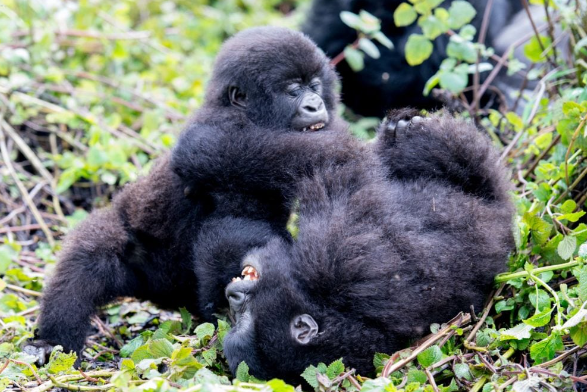Understanding Gorilla Play Behavior Among Juveniles: A Window into Social Development
Play behavior among juvenile gorillas is not just a fascinating spectacle; it’s crucial for their social development and survival in the wild. Understanding how young gorillas interact through play can provide valuable insights into their natural behavior, social structures, and emotional health.
The Importance of Play in Gorilla Development
Play is a vital part of the development of juvenile gorillas. It helps them learn essential life skills such as foraging, conflict resolution, and social bonding. Through playful interactions, young gorillas practice the skills they will need as adults, such as climbing, grabbing, and even communicating with their peers. This playtime lays the groundwork for healthy relationships within the group, which is critical in the wild where cooperation and group dynamics can determine survival.
Types of Play Behavior Observed
Juvenile gorillas engage in various types of play behavior, including object play, social play, and locomotor play. Object play involves the manipulation of sticks, leaves, or stones, which helps develop their problem-solving abilities. Social play is seen in chasing, wrestling, and gentle biting, fostering cooperation and establishing social hierarchies. Locomotor play is all about movement, showcasing their physical agility as they swing from branches or climb. Each of these play types contributes uniquely to their overall growth and adaptation to their environment.
The Role of Adults in Juvenile Play
While juvenile gorillas largely initiate and engage in play, the role of adult gorillas is significant. Adults often supervise and occasionally participate, providing safety and teaching moments. They model acceptable play behaviors and intervene when necessary to prevent rough interactions from escalating. This guidance is invaluable as it helps juveniles learn boundaries and appropriate social behavior. The presence of adults not only enriches the play experience but also fosters a sense of security amongst the young.
Conclusion
The play behavior of juvenile gorillas offers a fascinating look into their world, revealing how they learn, socialize, and prepare for adult life. Observing these interactions deepens our understanding of gorillas and underscores the importance of creating environments that encourage natural behaviors. Interested in learning more about gorillas and their behavior? Consider visiting a local zoo or nature reserve, or explore documentaries and academic articles that delve deeper into their social lives and conservation efforts.

